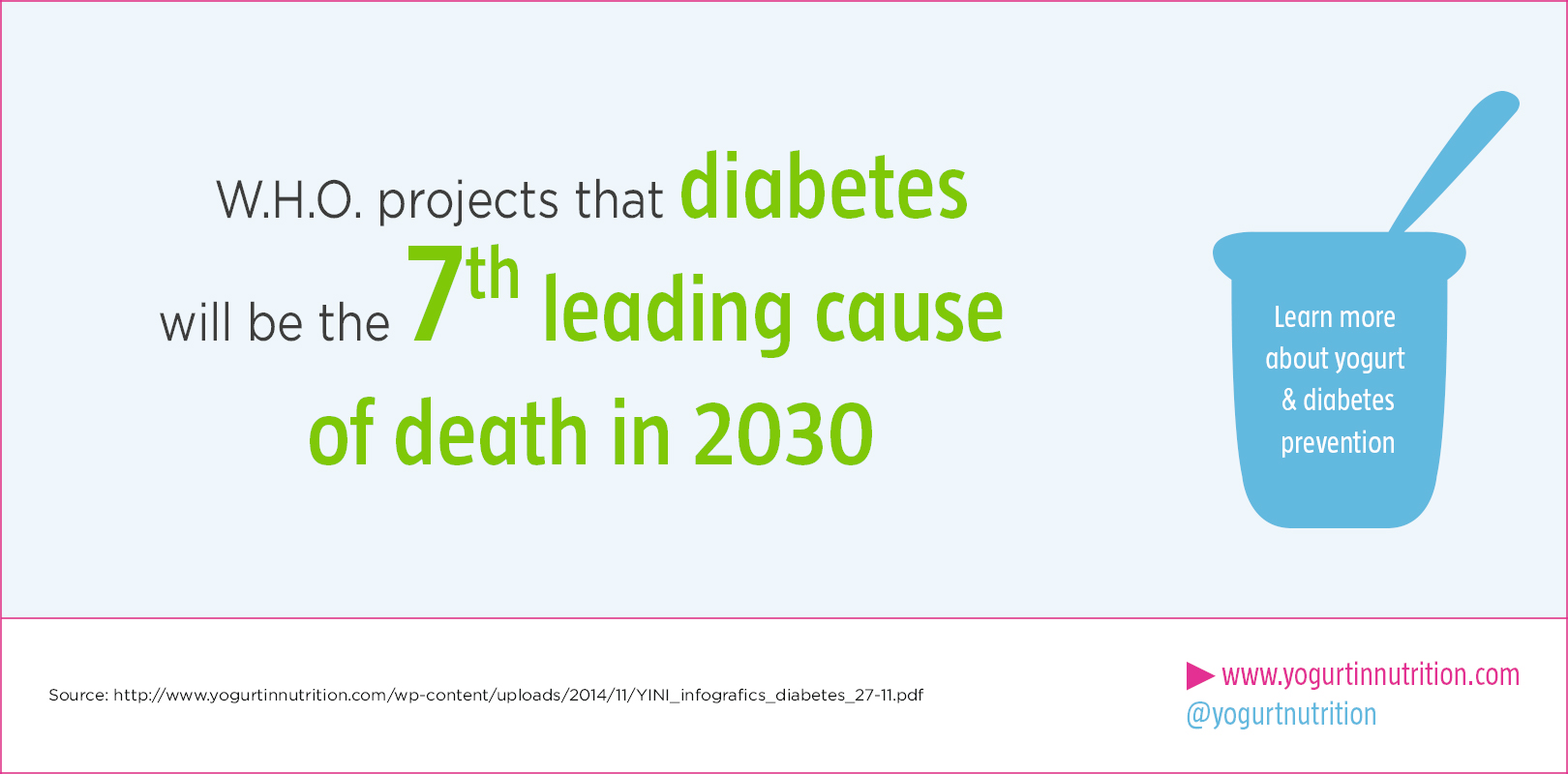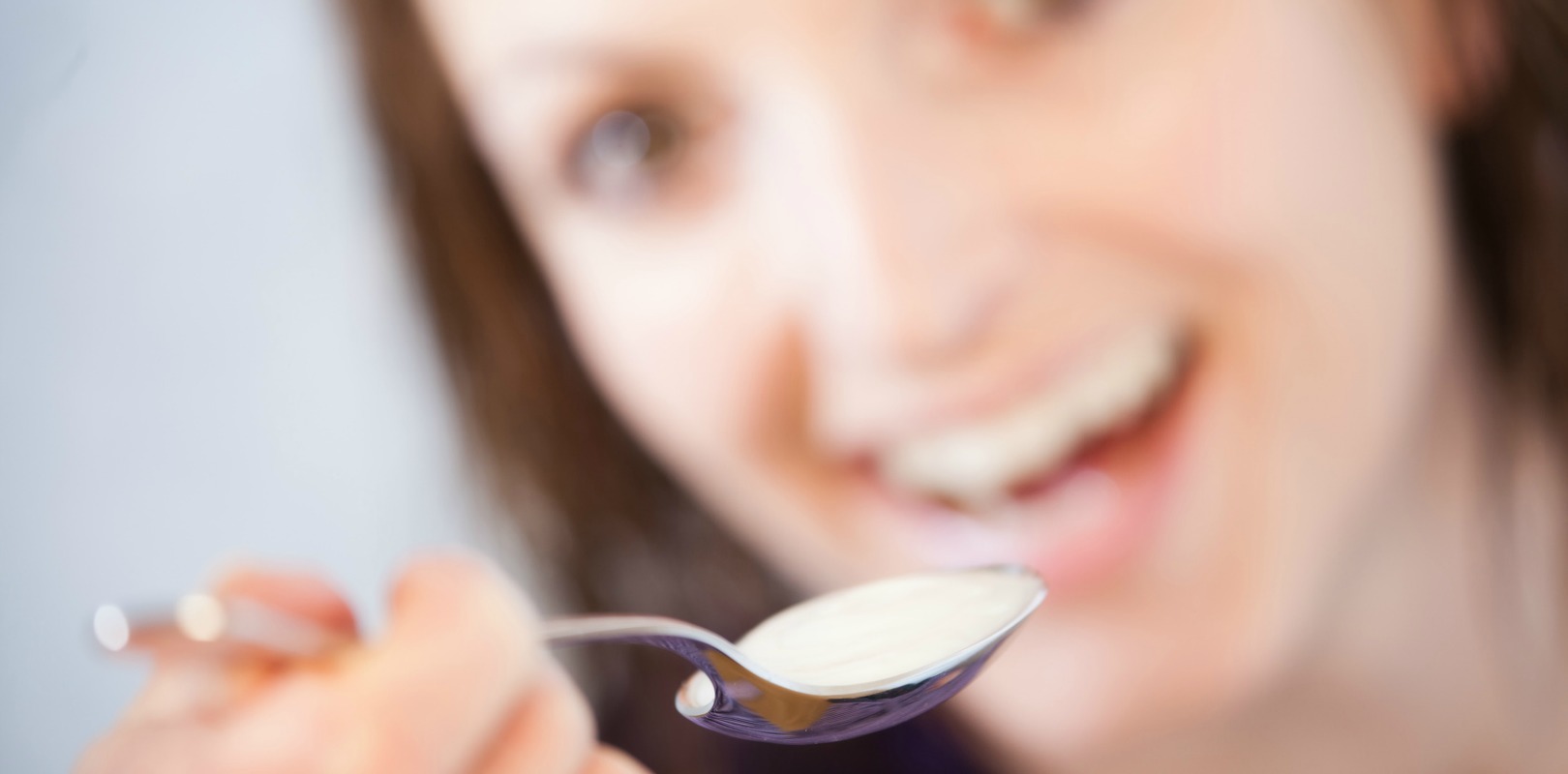Selected for you this week: find out what you can eat to protect bone health, by E2dietitian. Every week, we bring you valuable quotes from around the web on yogurt.
Selected for you: “Top tip to keep your bones healthy!”


Selected for you this week: find out what you can eat to protect bone health, by E2dietitian. Every week, we bring you valuable quotes from around the web on yogurt.

As yogurt contains many quality amino acids, an US study recommends a higher intake of yogurt proteins among elderly to maintain muscle mass and strength and to improve bone and cardiovascular health.
Epidemiological studies show that adequate muscle mass is crucial for health among elderly, as the loss of lean body mass occurs with aging. Increased protein intake through yogurt consumption improves muscle mass, bone and cardiovascular health, weight management, metabolic diseases and reduces all-cause mortality risks.
Muscle strength and physical functioning are more important for the health status in elderly, compared to muscle mass. A higher intake of proteins or amino acids increases muscle strength. Not only the amount, but the quality of proteins matter and is determined by the amount of essential amino acids (EAA) and their digestibility. A new scoring system, Digestible Indispensable Amino Acid Score (DIAAS), calculates the quality profile of proteins. The DIAAS for milk protein is approximately 140%, whereas 80% for vegetables.
Dr. Wolfe (University of Arkansas for Medical Sciences, US) recommends an optimal protein consumption of 1,5g/kg/day for elderly. The average protein intake in the US (1,2g/kg/day) is higher than the US Dietary Reference Intake (0,8g/kg/day). Yogurt consumption can contribute to more protein intake without excessive calories and has a higher amino acid quality compared to vegetable proteins, such as soy.

Yogurt-Sesame Sauce
Yogurt-Sesame Sauce

According the World Health Organization, diabetes will be the 7th leading cause of mortality in 2030!

Selected for you this week: the reasons why you have to enjoy a cup of yogurt every day, by Jen Haugen.
Nothing is more refreshing than yogurt topped with fruit or a smoothie whirled in a blender for those warm days that require only a light meal. Here are a few common questions about yogurt you might have. (more…)

Simply share your questions on Twitter (@YogurtNutrition) before October 22nd, using our official hashtag for the event FENS Berlin 2015: #yogurt2015. We’ll ask our speakers for feedback and get back to you with the answers.
Got questions for our speakers? Share them on #yogurt2015 & get answers on Oct 22 2015 #yogurt #nutrition #healthyeating
— YogurtInNutrition (@YogurtNutrition) October 13, 2015

Yogurt is a source of calcium, vitamin D and proteins, essential nutrients in your daily diet for bone health improvement.
As our bones are made of living tissue, it is crucial to consume the right nutrients for strong and healthy bones. A balanced diet and daily physical activity are key in stimulating bone health throughout life and preventing the risk for osteoporosis.
The bone and skeleton structure is influenced by age and each age group needs specific nutrients to support strong bones. A bone-healthy diet helps children and adolescents to build bone mass at a maximum level. Adults need to maintain healthy bones and avoid bone loss. For seniors it is crucial to sustain mobility and independence.
Calcium is a major building block for the skeleton: 99% of the Ca kg found in our body is residing in our bones. Our bones help us to preserve calcium levels in the blood for the nerve and muscle functions. Calcium is needed at all ages, but teenagers in particular need high levels; yogurt contains also proteins and vitamin D, which contribute to their growth.
Coeliac diseases and other gastrointestinal disorders may affect nutritional status and increase the risk of osteoporosis and fractures. Yogurt consumption is recommended to fuel adequate intake of calcium and vitamin D. People who suffer from lactose maldigestion or intolerance avoid dairy foods in general, which increases the risk of calcium deficiency and osteoporosis. Yogurt is the perfect alternative, as it contains live culture and is well tolerated.
Source: http://www.worldosteoporosisday.org/prevention/nutrition

Angelo Tremblay is currently professor at the Department of Kinesiology at Laval University, Quebec City, from where he obtained his undergraduate (BSc in Education) and postgraduate degrees (MSc in Nutrition and PhD in Physiology) between 1974 and 1982. Dr. Tremblay’s department has an international reputation in obesity research and his own particular interests are focused primarily on the environmental determinants of obesity in humans. He has published over 600 scientific papers. He is holder of the Canada Research Chair in Environment and Energy Balance. During the YINI symposium he will focus on yogurt consumption as part of a healthier diet and lifestyle.
Richard Atkinson graduated from the Virginia Military Institute and the Medical College of Virginia. He was on the faculty of the University of Virginia; University of California, Davis; Eastern Virginia Medical School; and the University of Wisconsin, Madison, where he is Emeritus Professor of Medicine and Nutritional Sciences. Currently he is Affiliate Clinical Professor of Pathology at Virginia Commonwealth University. He has worked in obesity research and treatment for over 40 years, is interested in obesity policy, and has advocated for young investigator programs nationally and internationally. His research includes causes and treatments of obesity, particularly obesity drugs, obesity surgery, and virus-induced obesity. His laboratory demonstrated that human adenovirus-36 produces obesity in animals and is associated with obesity in humans. Dr. Atkinson has over 200 publications and over 200 abstracts in the medical literature. At FENS 2015 he will report on the results of his comprehensive literature search, identifying key-findings on yogurt and weight management.
Jordi Salas-Salvadó holds the current position of professor of Human Nutrition and Bromatology of the Faculty of Medicine and Health Sciences at the Rovira i Virgili University in Spain. He is specialized in human clinical trials evaluating the effect of diets and dietary compounds on obesity, type 2 diabetes mellitus, metabolic syndrome and cardiovascular disease. Since 2005, he is one of the leaders of PREDIMED STUDY, considerate the best clinical trial evaluating the effect of the Mediterranean Diet on cardiovascular diseases. Since 1983 Dr. Salas has directed 18 research projects financed by public bodies and 23 projects in conjunction with the pharmaceutical or food industries. He has published more than 290 original articles in national and international journals, as well as numerous reviews and editorials. Editor of 6 books, he has also co-authored more than 50 books. He will end the presentations at FENS with his latest research on yogurt and diabetes prevention.

Les produits laitiers peuvent conserver leur place en cas d’intolérance au lactose. Il suffit alors de réduire ses quantités de lait consommées, de mieux les répartir sur la journée, et de privilégier les fromages affinés et les produits laitiers fermentés (comme le yaourt) pour atteindre les recommandations. Il est en effet prouvé par plusieurs études, validées par l’EFSA* (European Food Safety Authority), que les ferments vivants du yaourt améliorent la digestion du lactose chez les personnes qui le digèrent mal. Et si vous vous posiez enfin les bonnes questions sur l’intolérance au lactose?

Des preuves scientifiques attestent que la consommation de yaourt comme en-cas réduit la sensation de faim. Ce digest, développé par des experts en nutrition, décode les effets du yaourt sur l’appétit et, en particulier, le rôle joué par les protéines dans les signaux de satiété que nous ressentons après avoir mangé un repas.

